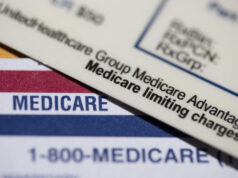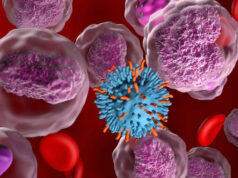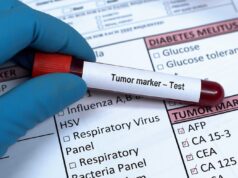 Cardiovascular disease is the number one killer in the United States, causing almost 500,000 deaths annually. It has been the focus of tremendous effort and research in the medical community, and there have been tremendous advancements when it comes to heart disease, from preventing coronary artery disease, to stopping heart attacks in their tracks, and hopefully in the future, to regenerating new heart muscle after a heart attack.
Cardiovascular disease is the number one killer in the United States, causing almost 500,000 deaths annually. It has been the focus of tremendous effort and research in the medical community, and there have been tremendous advancements when it comes to heart disease, from preventing coronary artery disease, to stopping heart attacks in their tracks, and hopefully in the future, to regenerating new heart muscle after a heart attack.
Unfortunately, most of these accomplishments are effective only after patient-doctor contact. Physicians rely, to a large degree, on general public knowledge about heart disease prevention, and recognition of the warning signs of a cardiac emergency.
What Is a Heart Attack?
When the flow of blood in the coronary arteries that supply the heart become blocked, a heart attack occurs. This usually happens when fatty buildups in the artery suddenly rupture, leading to the formation of blood clots that can completely obstruct the vessel. Muscle that is supplied by this particular artery begins to die, causing permanent damage.
One of the most important steps in treating a heart attack is recognizing the symptoms. In business time is money. The sooner a doctor diagnoses a heart attack, the sooner muscle can be saved. However, before this can happen, one has to know when to seek help. Some heart attacks are obvioussudden and intense. But most start slowly, with mild pain or discomfort. One of the most common cardiovascular myths is that youll know when youre having one, because youll have chest pain and pain in your left arm. This is not necessarily true.
There are other signs, like uncomfortable pressure, squeezing, fullness or pain in the center of the chest, lasting more than a few minutes, that goes away and comes back. Another symptom is pain or discomfort in one or both arms, (not always the left armsometimes just the right arm), the back, neck, jaw or stomach. Other signs include breaking out into a cold sweat, nausea and/or lightheadedness. Additionally, decreased exercise tolerance, increased fatigued and shortness of breath are potential red flags warning about significant heart disease.
Unfortunately, half of all people having heart attacks wait more than two hours before getting help, well past the point when muscle starts to die. Some people feel it would be embarrassing to have a false alarm, others try to convince themselves that they are not having a heart attack.
How Can I Prevent a Heart Attack?
You cant completely prevent a heart attack, but you can significantly reduce your risk, by controlling your blood pressure. Most people know that high blood pressure is bad, but many dont realize that it is one of the main causes of heart disease (and strokes).
Most people know that high cholesterol is a risk factor for heart disease. This is true for total cholesterol or LDL the bad cholesterol. What many fail to realize is that low HDLthe good cholesterol, actually is a risk factor for heart disease as well.
Of all the risk factors that can be modified, smoking is the most dangerous.
Some risk factors are out of ones control, such as age, gender and family history of heart disease. There is a misconception that if heart disease runs in your family, there is nothing you can do about it. That isnt true, because you can make sure your blood pressure isnt high; you can quit smoking and lower your cholesterol, eat a healthy diet and exercise.
Unfortunately, even if you have never smoked; you have normal blood pressure and low cholesterol, you can still have a heart attack. Although cardiologists have learned much about prevention and treatment of heart disease over the last few decades, they are the first ones to admit that there is much more to learn.
Don’t be afraid to call an ambulance if you think there’s the slightest chance you may be having a heart attack. To help prevent heart disease, exercise, eat lots of fruits and vegetables, have a stress test, monitor your blood pressure and cholesterol and most importantquit smoking.
_______________
Jason Esses is an attending cardiologist practicing in Brooklyn. He is affiliated with Maimonides Medical Center.



